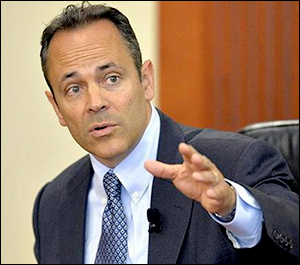By Jim Ellis

Mississippi Lt. Gov. Tate Reeves (R)
Lt. Gov. Reeves had the Republican establishment behind him, including public support from term-limited Gov. Phil Bryant and former governor and ex-Republican National Committee chairman Haley Barbour. Additionally, both he and Waller attempted to be viewed as the most conservative candidate in the race and ran as strong supporters of President Trump.
Therefore, a 54-46 percent win appears to be a slight under-performance, particularly when the drop-off turnout rate when compared to the primary election was only 15.3 percent. Tuesday’s turnout reached 324,353 voters, meaning that 58,727 fewer people cast ballots when compared to the early August Republican primary, which is a relatively small number.
Reeves now advances into the Nov. 5 general election where he will face the Democratic nominee, Attorney General Jim Hood. Hood has been commonly referred to as the “most successful Democrat in the South” because he has won four consecutive statewide elections in Mississippi. He was easily nominated in this year’s original gubernatorial primary, winning 69 percent of the vote against seven opponents, but the total vote in the Democratic primary was less – 21,963 votes less — than even last night’s Republican run-off.
The lieutenant governor carried 65 of Mississippi’s 82 counties against Judge Waller, though five of the locality results denoted a winner garnering less than 51 percent of the vote. In one county, Quitman, Reeves’ victory margin was just one vote.
In what could be a rather ominous sign for the general election, Reeves did poorly in and around the state’s capital and largest city, Jackson, its county (Hinds) and the two suburban entities bordering it, Madison and Rankin counties. He lost all three of these counties, though the aggregate vote totals in Hinds were low.





